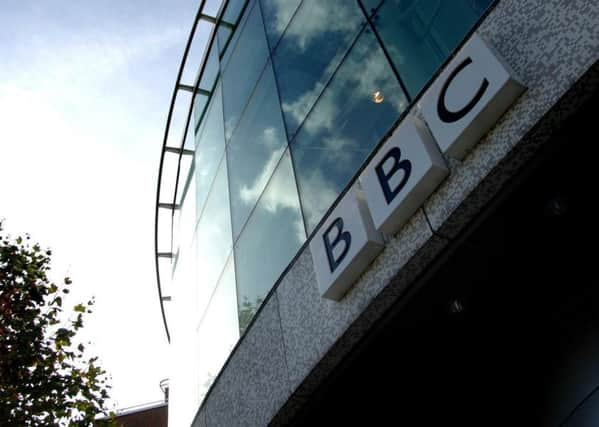Bill Carmichael: Bloated salaries expose BBC's basic flaws


The politically correct BBC, which bangs on about “growing inequality” and the gender pay gap at every opportunity, turns out to be one of the most unequal corporations on the planet – and one that treats its female “talent” much less favourably than the men.
In its annual report released on Wednesday the BBC – or the Bloated Blokes’ Club as one of the tabloids dubbed it – was forced to reveal the pay of all of its on air “talent” who earn more than the Prime Minister.
Advertisement
Hide AdAdvertisement
Hide AdThe figures show not only some eye-popping high salaries but also that the seven top earners and two thirds of the 96-strong list were male.
Cue revolt among the ranks, with female presenters demanding whopping pay rises to even up things a bit.
Some of the wages are simply astonishing. The disc jockey Chris Evans is paid £2.2m a year for – as far as I can tell – playing records on the radio. Seriously, how difficult is it to press play?
Gary Lineker, the achingly trendy champion of the poor who never misses an opportunity to wave his virtue in our faces, gets £1.75m from hard-pressed licence fee payers for talking about football.
Advertisement
Hide AdAdvertisement
Hide AdRadio presenter Jeremy Vine was accused by an ex-miner who called his show of being “grossly, grossly overpaid”. To be fair to Vine, who is paid at least £700,000 a year, he responded by pressing ex-Labour Minister and BBC executive James Purnell to justify such a high salary. Purnell replied: “You are a fantastic broadcaster!” Please, pass the bucket.
Radio 4 Today programme veteran John Humphrys admitted he couldn’t explain his £650,000 a year salary but it just went “up and up and up” without him ever asking for a raise. Nice for some, isn’t it?
The BBC’s defence is that it operates in a competitive market for talent and rival offers from commercial broadcasters have driven salaries upwards.
In some cases this is undoubtedly true. I imagine that heavyweight journalists such as Andrew Neil and Laura Kuenssberg could earn equivalent salaries or more elsewhere.
Advertisement
Hide AdAdvertisement
Hide AdBut how many commercial broadcasters are queuing up to offer Chris Evans over £2m to present a radio show?
In normal circumstances I would argue that the salary an individual receives from a company is entirely a matter for the two parties involved and is nobody else’s business.
It is not the role of the state to impose pay caps on private individuals. If you can negotiate a £2m a year deal and your employer is happy to pay it, then fair play to you.
Everyone has the right to strike the best deal they can for their skills in a fair and open market.
Advertisement
Hide AdAdvertisement
Hide AdBut the BBC is not like other companies – it does not operate in a fair and open market and its customers are not willing participants in a commercial deal.
Instead the BBC is funded by a compulsory £147 a year tax on the ownership of a television set imposed on virtually every household in the county.
There is nothing voluntary about the licence fee – if you don’t pay it you face prosecution, even if you never watch the BBC’s channels.
And uncomfortable as it might be for the right-on BBC, the fact is this is a regressive tax that hits the poor hardest. More than 180,000 people are prosecuted for licence fee evasion every year, more than one in ten of all criminal cases in England and Wales, and they face fines of up to £1,000. Of those who can’t or won’t pay the fine, at least 70 have been sent to prison in recent years.
Advertisement
Hide AdAdvertisement
Hide AdIf BBC “talent” feel a pang of guilt for sending poor people to jail for failing to contribute to their bloated salaries there is a simple solution – they could push for the BBC to scrap the licence fee and become a subscription service.
Then people can freely decide whether to buy a subscription from the BBC, or to spend their money on a rival service from Sky or BT.
The BBC would then be entirely within its rights to withhold details of the pay deals it has struck with its presenters.
And if the BBC is such fantastic value for money as its defenders say, it should have no trouble attracting sufficient subscribers to pay its vast pay bill.